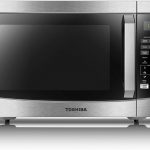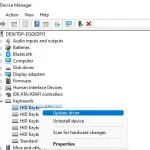Home security cameras are said to be essential to all homeowners since these provide great advantages to them. One of its prominent significance is the safety and security of their property and their overall living in the place. The majority of people tend to buy security cameras to be placed at home because they have recording capability and are affordable to be purchased.
Table of Contents
What is a Security Camera?
A security camera is a type of video surveillance gadget that can be used to capture images or footage in an area. Security cameras are commonly installed at buildings and homes, for the purpose of detecting unexpected activity.
Security cameras come with different features such as night vision, motion detection, and wide-angle lenses. These features make them more useful because they allow you to see better during dark conditions and identify potential threats if something moves while you’re away from property or home
Expecting these types of features will help you choose the best security camera for your needs! There are many different features that can be added to a security camera in order to make it more secure and useful.
- Night Vision: This feature allows a camera to see in dark environments when there is no light available. It is important for any type of security system because burglars often break into houses at night when people are sleeping.
- Motion Detection: This feature enables a surveillance system to detect motion around the area where the cameras have been set up, as well as send an alert if anything moves while you’re gone from your property or home.
- Wide-Angle Lens: A wide-angle lens will capture a larger field of view, making it easier to identify potential threats.
5 Benefits of Security Cameras
Installing security cameras at home is a nice option for these giving you the assurance that you can capture and record the images or videos of all the visitors and strangers in your place.

1080P HD indoor, plug-in security camera with motion detection and two-way audio that lets you monitor the inside of your home day and night.
Below are the 5 benefits of security cameras at home.
- Check your family – With the installed security cameras at home, you can even check your family members, especially the kids, at home. So, you don’t need to worry anymore even if you are far away from your home. Whether you’re at work or traveling, these cameras allow you to keep an eye on your loved ones. Concerns about your children’s safety can be alleviated as you can remotely monitor them through the installed cameras. No matter how far away you are, you can ensure their well-being with just a few taps on your smartphone.
- Check your pets at home – Not only can security cameras help you keep an eye on your family, but they also provide the means to monitor your pets while you’re away. Pet owners often worry about their furry friends being left alone at home. With security cameras, you can simply check in and see what your pets are up to. This ability to observe their behavior and ensure their welfare brings great comfort to pet owners and enhances the bond between humans and their beloved companions.
- Prevent the criminals from robbing your home – Beyond personal monitoring, security cameras serve as an effective deterrent against potential criminals. The mere presence of cameras can dissuade thieves from targeting your home. Knowing that their actions are being recorded and their identities could be captured on video makes burglars think twice before attempting to enter your property. By providing a visible layer of protection, security cameras help prevent break-ins and protect your valuable possessions.
- Have insurance benefits – In the unfortunate event of a robbery or crime, security cameras prove to be invaluable in capturing crucial evidence. The recorded videos serve as an objective account of the incident, allowing you to document every detail. This documentation is particularly useful when filing an insurance claim. By presenting the recorded footage to your insurance provider, you can provide concrete evidence of the incident, validating your claim and increasing the likelihood of a successful outcome.
- Aid the police in a specific investigation – Security cameras play a vital role in aiding law enforcement agencies during investigations. If a crime occurs within the vicinity of your property, the recorded footage becomes a valuable resource for the police. By sharing the footage with the authorities, you contribute to their efforts in identifying and apprehending the culprit. Your cooperation and provision of critical visual evidence can significantly assist the police in their investigation, potentially leading to a quicker resolution.
If you have home security cameras, you can be comfortable living in your place since you are well-protected and secured.
FAQs about Security Cameras
Do security cameras record all the time?
Security cameras are not always recording because they typically only record when there is motion detected. If nothing has been detected, the camera will stop recording and save space on your memory card or hard drive
If you need to know what happened during a time without movement by an object in the frame, then it’s better to choose continuous recording instead of motion detection for security reasons. Continuous recording means that the camera records all the time even if no objects move within its field of view
Since this type of setting uses more storage than other settings, it may be necessary to change how often video clips are saved so as not to have too many short recordings stored on your device. For example, every two minutes versus one minute. This setting can affect the life of your security camera a lot.
Do wireless cameras slow down WiFi?
Wireless cameras can slow down WiFi because of the number of devices that are using them, but this is not always true. For example, if you have a strong router and high-quality wireless internet then your WiFi speeds will remain fast with or without a security camera on your network. It’s also important to note that most modern systems automatically balance out bandwidth usage among all users so there should be no noticeable difference in internet performance between having one device connected wirelessly vs. wired.
How long do security cameras retain recorded footage?
The length of time that security cameras retain recorded footage varies depending on several factors, such as the storage capacity of the system and the settings configured by the user. Some systems may overwrite old footage after a certain period, while others allow for longer retention periods, often ranging from a few days to several months.
Can security cameras be accessed remotely?
Yes, many modern security camera systems offer remote access capabilities. With the right setup and proper configuration, users can access their security camera feeds and recordings from anywhere using a smartphone, tablet, or computer. This allows for convenient monitoring and surveillance, even when you are away from your property.
Are security camera recordings admissible as evidence in legal proceedings?
In most cases, security camera recordings are considered admissible as evidence in legal proceedings, subject to certain conditions. The admissibility of the footage depends on factors such as the quality and clarity of the recording, the chain of custody, and compliance with relevant privacy laws. It is advisable to consult with legal professionals to understand the specific requirements in your jurisdiction.
What is the difference between analog and IP cameras?
Analog cameras transmit video signals in analog format, while IP (Internet Protocol) cameras convert video signals into digital data and transmit them over an IP network. IP cameras offer several advantages over analog cameras, including higher resolution, better image quality, remote accessibility, and advanced features such as motion detection and video analytics.
Can security cameras function in low-light or nighttime conditions?
Yes, many security cameras are equipped with infrared (IR) technology or low-light sensors to capture clear images in low-light or nighttime conditions. These cameras use infrared illumination or ambient light enhancement to enhance visibility and produce usable footage even in challenging lighting environments.
Are security cameras weatherproof?
Many security cameras are designed to be weatherproof and can withstand various environmental conditions. Weatherproof cameras are typically rated with an IP (Ingress Protection) code, indicating their level of resistance to dust and water. It’s important to choose cameras with appropriate IP ratings based on the specific outdoor or indoor installation requirements.
Can security cameras be hacked?
While any device connected to the internet is potentially vulnerable to hacking, the risk of security cameras being hacked can be minimized with proper security measures. It is crucial to follow best practices such as using strong and unique passwords, keeping firmware up to date, using secure networks, and implementing encryption protocols to protect against unauthorized access.
Do security cameras require professional installation?
The installation of security cameras can be approached in different ways. While some complex systems may require professional installation, many modern security cameras are designed for easy installation by the user. Wireless cameras, in particular, are often DIY-friendly, allowing users to set them up without extensive technical expertise. However, professional installation may still be preferred for more complex setups or larger-scale installations.
Can security cameras be integrated with other smart home devices?
Yes, integration with other smart home devices is possible with many security camera systems. Integration allows for enhanced functionality and automation. For example, security cameras can be integrated with smart home hubs, enabling users to control and view camera feeds through a central interface or receive notifications on other connected devices such as smartphones or voice assistants.
Are security cameras subject to privacy regulations?
Yes, security cameras are subject to privacy regulations in many jurisdictions. The specific laws and regulations surrounding the use of security cameras can vary depending on the country or region. It is essential to understand and comply with applicable privacy laws, such as informing individuals when they are being recorded and respecting their privacy rights. Consulting legal professionals can provide guidance on the specific regulations
and requirements in your area to ensure compliance with privacy regulations while using security cameras. These regulations aim to balance the need for security with the protection of individuals’ privacy rights.
It’s crucial to be mindful of camera placement to avoid infringing on the privacy of neighbors or individuals in public spaces. In certain situations, it may be necessary to blur or mask specific areas to respect privacy, such as neighboring properties or areas where individuals have a reasonable expectation of privacy, such as bathrooms or changing rooms.
By understanding and adhering to privacy regulations, users can ensure that their security camera systems are used responsibly and ethically, maintaining a balance between effective surveillance and respecting the privacy of others.
As privacy laws and regulations continue to evolve, it is advisable to stay informed about any updates or changes that may affect the use of security cameras in your jurisdiction. Local authorities, legal professionals, or privacy advocacy groups can provide guidance and resources to help navigate the complex landscape of privacy and security camera usage.
Remember, responsible and lawful use of security cameras not only helps protect your property and loved ones but also demonstrates respect for privacy and contributes to maintaining a safe and secure environment for everyone.




